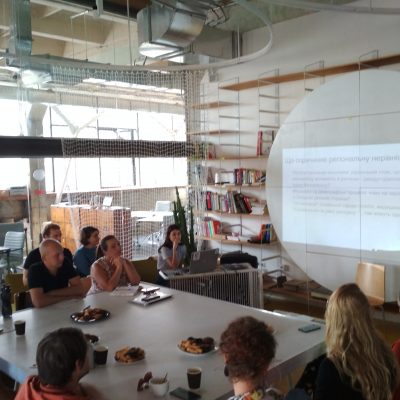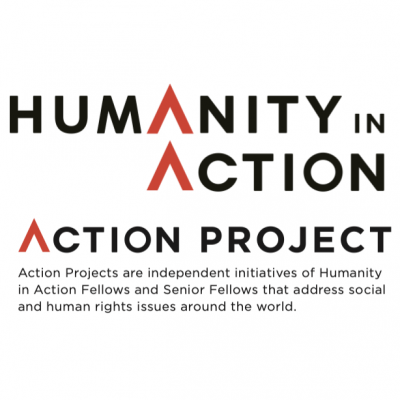Article
The Ivano-Frankivsk region of Western Ukraine is home to one of the lowest rates of urbanization in the whole country. For example, some communities live in secluded mountain areas with limited access to public services. This, coupled with the current socio-economic and political challenges Ukraine is facing, exacerbates the already existing structural inequalities and the lack of social cohesion. One aspect Senior Fellows Yaromyr Udod and Viktoriia Muliavka found particularly troubling is the scarcity of equal educational opportunities in those rural communities. Having already worked on some projects aimed to enhance the quality and equality of education in the conflict-ridden Donbas region for over a year, Yaromyr identified this same problem when he was promoted and transferred to Western Ukraine.
Yaromyr and Viktoriia knew each other before their respective Humanity in Action Fellowships. Both graduated from a Faculty of Sociology at the Kyiv-Mohyla Academy and were cooperating with each other through Ukrainian social critique journal ‘Commons’ in which Viktoriia works a managing editor. Yaromyr completed the Fellowship in Warsaw in 2017 and Viktoriia in Berlin in 2018. Together, they decided to join efforts to tackle educational inequality back in Ukraine. Upon their return to Ivano-Frankivsk City, Yaromyr and Viktoriia partnered with a number of local organizations with similar goals (Insha Osvita, Moloda Prosvita, Stan, and Dom48.24) to initiate their Action Project.
Being a PhD student who tries to combine an academic career with social activism, I noticed how distinct those two fields are in practice, especially in the Ukrainian context. However, complex structures of inequalities in the local context requires both academic knowledge and practical skills in order to better understand and tackle the problem. Those contradictions inspired us to create a space where researchers and practitioners can exchange their knowledge and experiences to find a common ground. (Viktoriia Muliavka)
The hands-on experience Yaromyr had, combined with Viktoriia’s extensive theoretical knowledge and applied research in the area of educational inequality was a perfect match for fulfilling their mission. After a period of brainstorming, the Action Project became a reflective seminar for the members of the NGOs mentioned above, which are themselves working to improve the regional inequalities in education based on ethnicity, income level, and geography, among other things. Yaromyr and Viktoriia deemed such a reflective experience for the NGOs necessary because these organizations are doing great work and have plentiful experience, but lack theoretical knowledge and empirical data on the issue which could complement their work even further. They invited a guest speaker, Alona Liasheva, who has a PhD in urban studies focusing on spatial inequalities in Ukraine, to help host and enrich the seminar.
The project was successful and received overwhelmingly positive feedback from the attendees. The seminar raised the awareness of the factors causing and multiplying these structural inequalities, such as xenophobia, children’s involvement in housework, the lack of resources, and political will to improve the learning facilities and capabilities of such remote rural areas, just to name a few. Having this understanding of the source of inequalities better prepares these practitioners to attack the issue at its roots, which should help improve the situation in the years to come.
Although this particular project has come to a close, Viktoriia and Yaromyr are committed to continue working for this cause. In future projects they hope to involve teachers and schools in their efforts to have a more direct effect on the unprivileged communities they seek to help.
“Although our organization is working with certain social groups that can be regarded as unprivileged, I rarely reflected on this issue from the analytical point of view.” Eugeniya Bardyak, Head of Moloda Prosvita
“Alyona Lyasheva and Viktoriia Muliavka approached the topic thoroughly and brought up important facts. For example, education in rural and urban areas is affected by the economic, cultural capital of schools, and families. Very often, rural schools are not sufficiently provided with the necessary equipment and even the proper facilities. Due to the involvement in housework, children in rural areas spend less time on learning. They have few or no options between ‘out-of-school’ and non-formal education. Developing youth leadership potential is not a priority.” (Eugeniya Bardyak, Head of Moloda Prosvita)




